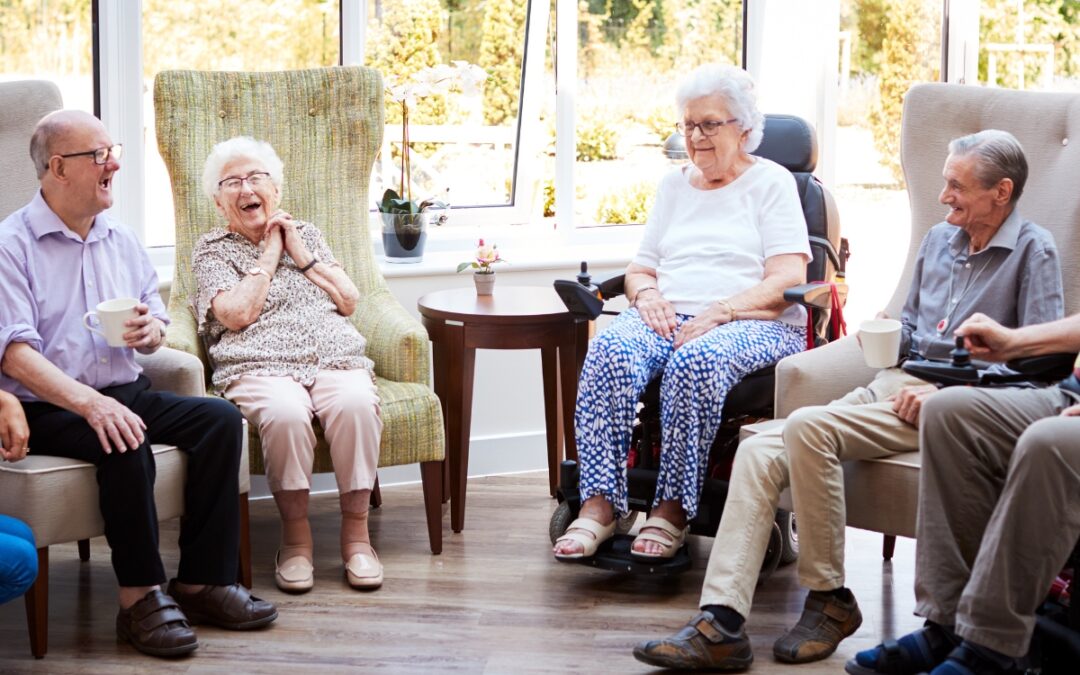Moving into a care home is a major life transition that can evoke feelings of uncertainty and positive change.
This article offers practical advice to help make moving into a care home smoother and ensure a positive experience in a new environment.
Verify the Care Home’s Services
Confirming that a care home meets your needs is essential before fully committing to it. This will give you the confidence that all your medical, dietary and personal care requirements are aligned with what the care home offers.
You can also take this time to visit the grounds to get a feel for the environment, interact with the staff and ask them about staffing ratios, daily activities, independent living and healthcare provisions before making a final decision.
Dietary Requirements
Proper nutrition is vital for well-being. Before moving in, discuss any dietary restrictions, preferences or allergies with the care home management team. For further reassurance, request to see sample menus and ask about meal flexibility. While a resident, staying involved in meal planning and providing feedback to staff can help ensure that your diet remains nutritious, enjoyable and suited to your tastes.
Prepare Emotionally for the Move
Transitioning into a care home can be emotional, especially if it means leaving a familiar environment you’re comfortable in. While you may be trying to keep an open mind and focus on the positive, it’s important to seek emotional support from friends, family or a professional to discuss your concerns.
It’s important to ask questions and stay involved in the decision-making process to retain a sense of control. It’s worth also talking with residents and staff before moving to help ease any anxiety you have. Adjusting takes time, and it’s okay to experience a mix of emotions during the transition.

What to Pack
Packing for a care home requires thought and planning. Start with essential documents, such as identification, medical records and care plans. Consider comfortable clothing for different seasons, footwear and personal care items.
Aim to pack at least two weeks’ worth of easy-to-get-on and off, durable clothing for frequent washing and drying. It’s important to ensure they’re all labelled so they can be returned easily. Alongside clothes, pack your toiletries and your favourite cosmetics.
Additionally, making your room your own is essential, so don’t hesitate to bring familiar items like photographs, your favourite pillow, a cosy blanket, cushions, your favourite book and even small furniture pieces if space allows.
While it’s best to avoid overpacking, it’s important that you have everything necessary to feel comfortable and settled into your new living environment. To avoid the anxiety of throwing beloved items away during the transition, consider hiring a storage unit or storing them at a family member’s home until you’ve given it more thought.
Managing Moving Day
Moving into a care home can be a stressful experience. Plan ahead of time to reduce your nervous energy. You can arrange for your belongings to be transported and have someone drive you. Consider arriving early to avoid the build-up of anxiety, familiarise yourself with the surroundings and reacquaint yourself with the staff and residents.
This can help you ease into it. Use the opportunity with your loved ones to make your room as welcoming and comfortable as possible. Slow down your mind and allow yourself to process your emotions as you settle in. Don’t be afraid to have your loved ones stay with you for a while to provide reassurance.
Settling into the Care Home
Adjusting to a care home can take some time. It’s important to be patient with yourself and ease yourself into the care home’s daily structure. While it’s not compulsory, consider participating in social activities to build connections with other residents and staff. This can also help you to familiarise yourself with the daily schedule and take advantage of available amenities.
Keep communication open with staff about any concerns or adjustments needed. If you’re continuing to feel emotional about your stay, speak to a loved one, staff member or counsellor to provide guidance and relieve stress. Gradually, you will find a routine that suits you, helping you feel more comfortable and at home in your new environment.
Staying Connected & Independent Living
Moving into a care home does not mean losing independence. You can stay well-connected with your loved ones through phone calls, video chats and regular visits. At a family-run care home, they know the importance of loved ones visiting.
As a result, there are no restrictions on when they can see you. They can even take you out for the day or participate in daily activities set up by the staff. Advocate for your own needs and preferences to maintain a sense of control over daily life. Maintaining independence and social connections can significantly enhance your quality of life, making the care home feel more like a home.

Hello, my name is Bethany, and I am the owner, manager and third generation in the family business. I have grown up with the Chestnuts, and it is a second home to me and my children. My home/work life is very mixed, and that’s ok because being at work feels like being at home.

